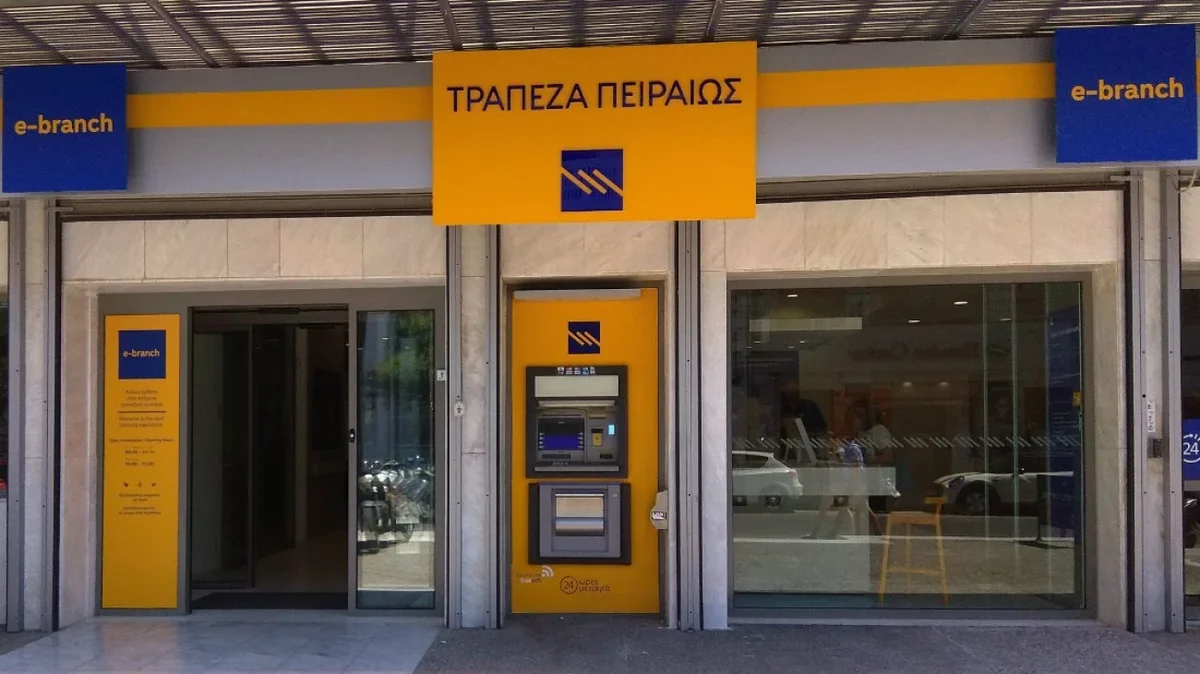Η bank Piraeus charges for the same banking product depending on your face. And it may have turned bankers into savvy salespeople.

Pay attention to the charges at the Piraeus bank. An incredible scene made us wonder if the bank has face control on its charges and if its bank employees get percentages on commissions or are content with a friendly pat on the back.
We understand that it is a private organization with a pure purpose of profit, but with the rights it has received from the state as a weapon, it charges as it pleases and may be moving on the border of illegality. But let's explain:
A private company decides to pay its employees through the Piraeus bank. He informs them that all employees should open, if they do not already have, a payroll bank account with that bank.
The banking product they must acquire is common to all employees. A payroll account with a cash card and a web banking code. Four company employees went to four different subsstores of the Piraeus bank and asked for the same account. Result: They had four different charges!.
Let's go see.
Customer No. 1 went to the Keratsini branch in Athens. They charged him 10,00 euros for the supply of the cash card and 13,00 euros for the supply of web banking. They also tried unsuccessfully to charge him 30,00 euros for the security of the cash card (if they steal it and take money you can claim it back through the security), but he refused and they accepted it.
Customer No. 2 at the Korydallos branch in Athens. They charged him 30,00 euros for the security of the card, telling him that it is mandatory, they did not charge him for the cash card and web banking (they gave them to him for free) and tried to "sell" him life insurance for 20,00 euros which he refused and they accepted it.
Customer No. 3 at the Glyfada branch in Athens. They charged him 10 euros for the supply of the cash card, gave him free web banking and tried unsuccessfully to pass him the security of the cash card for 30,00 euros.
Customer No. 4 at the branch at centre Athena's. They gave him everything for free (cash card, web banking), didn't require card or life insurance or anything else and didn't require him to deposit any money when opening the account. No they weren't softies there in the center. The customer was forceful….
He insisted on seeing and reading all the documents before signing them which in the usual practice of the bank clerks presented him with the last page of a three page packet prompting him to sign.
They told him that they filled in "on their own" that he consented with the GDPR prompting him if he disagrees to change it afterwards in web banking. The customer stubbornly demanded that it be changed immediately, before signing.
He asked every document he was in doubt about if there was a charge before he signed it. Suppose that with all this they did not dare to sell him anything....
Salespeople or bank employees?
And something else that impressed us is that two out of four customers heard from different Piraeus bank employees exactly the same question in the same friendly and pleasant way:
“Do you live in such and such area Mr. So and do you go to work in such and such area? Isn't it far?”
Knowing the tricks of a good salesman, we assume that the bank employees have probably gone through sales seminars on how to break down the customer's defenses.
So give it your due caution in transactions with this particular bank.






In one suspended sentence case they refused to provide a pre-existing payroll account. Of course, no one told us the reason. They even have us in envelopes and no one can intervene.
Piraeus has been able to set up a stall only at the fairs
Banker = the mafia da capo who obtains a business tax number